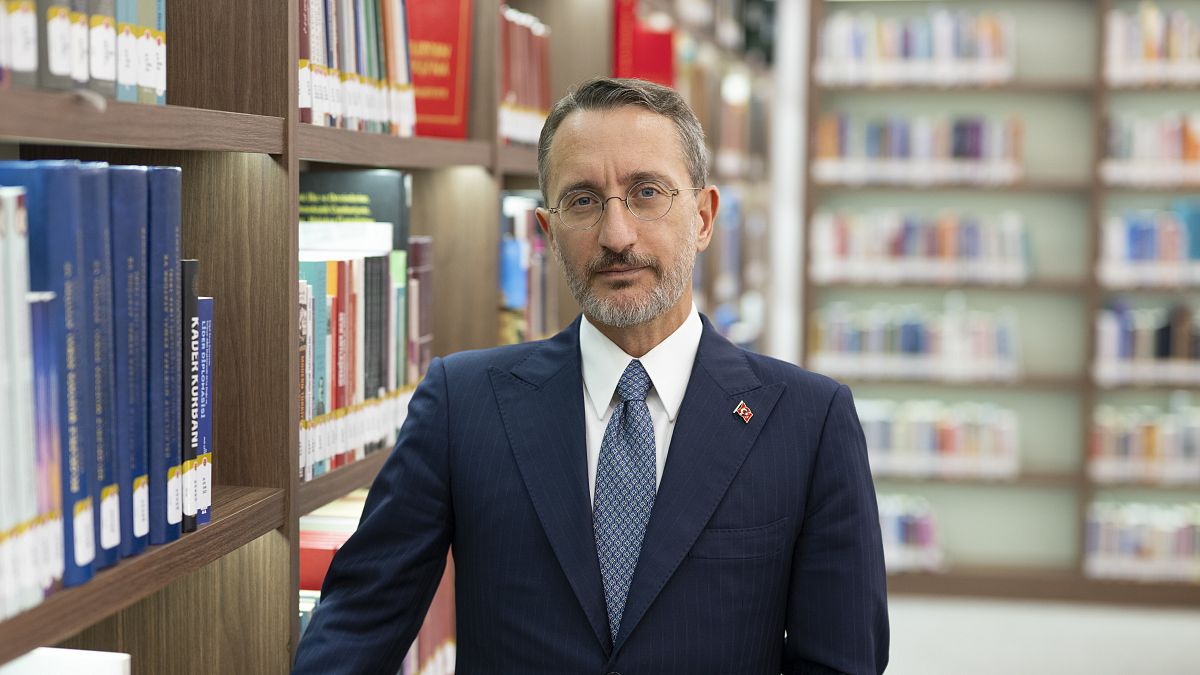Actor Abou Sangaré’s journey sheds light on French immigration debate

French film ‘Souleymane’s Story’ (L’Histoire de Souleymane) follows the life of an undocumented asylum seeker. It has also drawn attention to the real-life situation of the film’s lead, Abou Sangaré, who still has the threat of deportation hanging over him – despite being an award-winning actor.
Walking around in French towns and cities over the past week, you’d have been hard pressed not to encounter Abou Sangaré, whose face was plastered over street corners, bus stops, metro stations and newspapers.
The 23-year-old Guinean immigrant plays the lead role in Souleymane’s Story, an acclaimed feature film that’s in French cinemas this week and picked up two awards at the Cannes Film Festival, including Sangaré winning Best Actor at the “Un Certain Regard” competition.
In the film, Sangaré portrays a young asylum seeker navigating life as a delivery man in Paris, preparing to make his application for legal status in France. This narrative resonates deeply with Sangaré’s own reality; like the role he inhabits on screen, he is appealing to French officials to grant him residency and abandon their efforts to make him leave.
The success of Souleymane’s Story comes at a pivotal moment in France, when the new government is taking a harder line on irregular migration – pledging to make it more difficult for immigrants without permanent legal status to remain, and easier for France to deport them.
“When I see Souleymane sitting in the French Office for the Protection of Refugees and Stateless Persons, I put myself in his place, because I know what it’s like to wait for your (identification) papers here in France, to be in this situation – the stress, the anxiety,” Sangaré told The Associated Press in an interview.
“Like me, Souleymane finds himself in an environment that he doesn’t know,” he said.
Sangaré’s journey to France began when he left Guinea at the age of 15 in 2016 to support his ailing mother. His path took him through Algeria and Libya, where he was imprisoned after a failed attempt to cross the Mediterranean. After reaching Italy, he finally arrived in France in May 2017.
Despite his efforts to be recognised as a minor being denied, Sangaré persevered. He enrolled in high school and eventually trained as a car mechanic – a sought-after skill in France. Recently, he secured a full-time position at a workshop in the northern French city of Amiens, where he has lived for the past seven years and, as it happens, French President Emmanuel Macron also grew up.
But, until the French press reported on Friday that Sangaré had finally received a six-month temporary visa, he was unable to accept the job.
His agent told the media that Sangaré is “relieved” but “well aware” that his immigration ordeal is far from over.
Previously, Sangaré was unable to accept the job because of his illegal status. He had unsuccessfully applied three times for papers and was living with a deportation order over his head – a cycle that seems doomed to repeat itself in the absence of permanent papers.
Critics say deportation orders have been used more and more by successive governments.
“We are the country in Europe that produces (the) most expulsion procedures, far ahead of other countries,” said Serge Slama, a professor in public law at the University of Grenoble, remarking on the more than 130,000 deportations ordered in 2023.
Slama believes their use is “highly inefficient,” as many of the orders aren’t or cannot for legal reasons be carried out.
According to Interior Minister Bruno Retailleau, who was appointed in France’s new government of conservatives and centrists last month, about 10% of people targeted for deportation actually end up leaving.
He wants to see more immigrants lacking permanent legal status held in detention centres – and for longer – and is urging regional authorities to get tough on these measures. Diminishing the “pull” factors for foreigners seeking to reach France, he also says he wants to make the country “less attractive,” including cutting back on social benefits for them.
Mathilde Buffière, who works with immigrants in administrative detention centres through the nonprofit Groupe SOS Solidarités, has observed a troubling trend: officials are dedicating “less and less time” to reviewing residency applications before placing individuals in detention.
For Abou Sangare, last year marked a turning point when he crossed paths with filmmaker Boris Lojkine. After several auditions, Sangare landed the lead role in Souleymane’s Story.
Possibly even more significant than these awards, though, might be the emails that came from government officials after Cannes, inviting Sangaré to renew his residency application.
While French authorities confirmed to the AP that the deportation order against the actor “remains legally in force,” they said that his case is being reexamined due to his efforts to integrate into society.
“I think the film did that,” Sangare told the AP, “You need a residency permit to be able to turn your life around here. My life will change the day I have my papers.”
World News || Latest News || U.S. News
Source link



